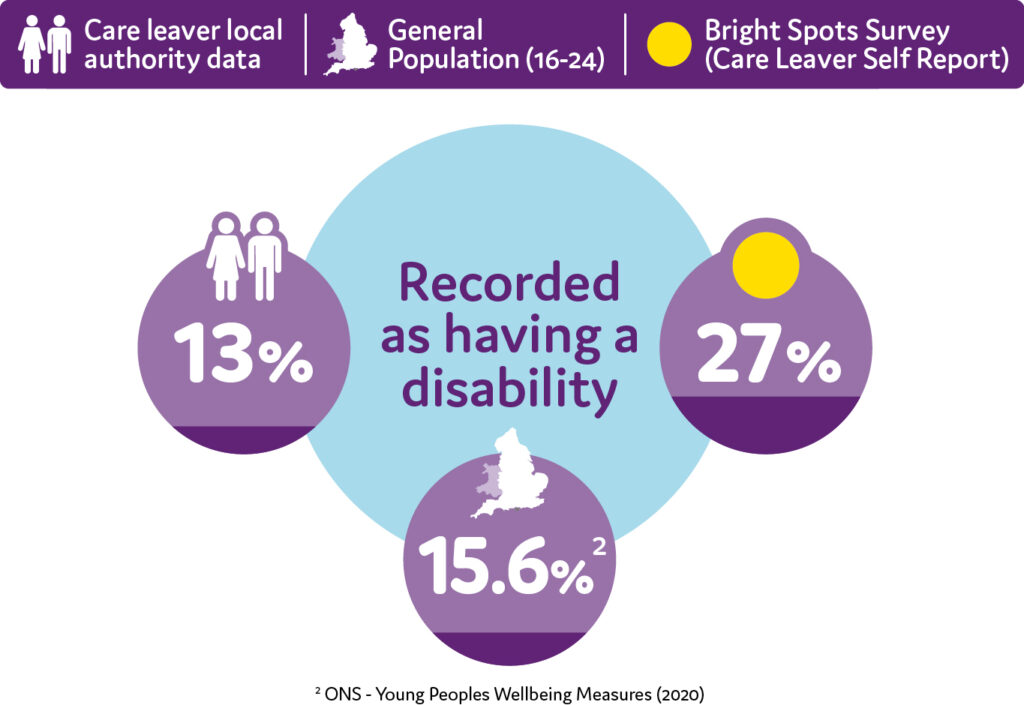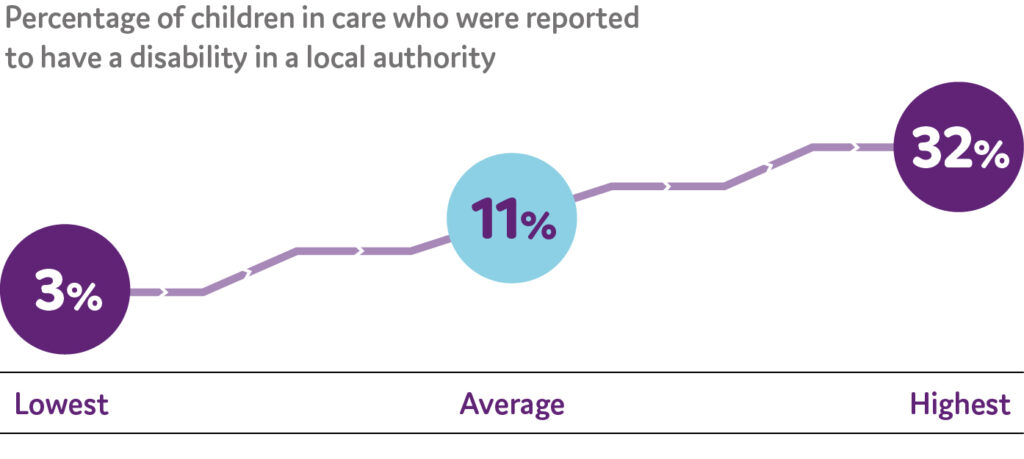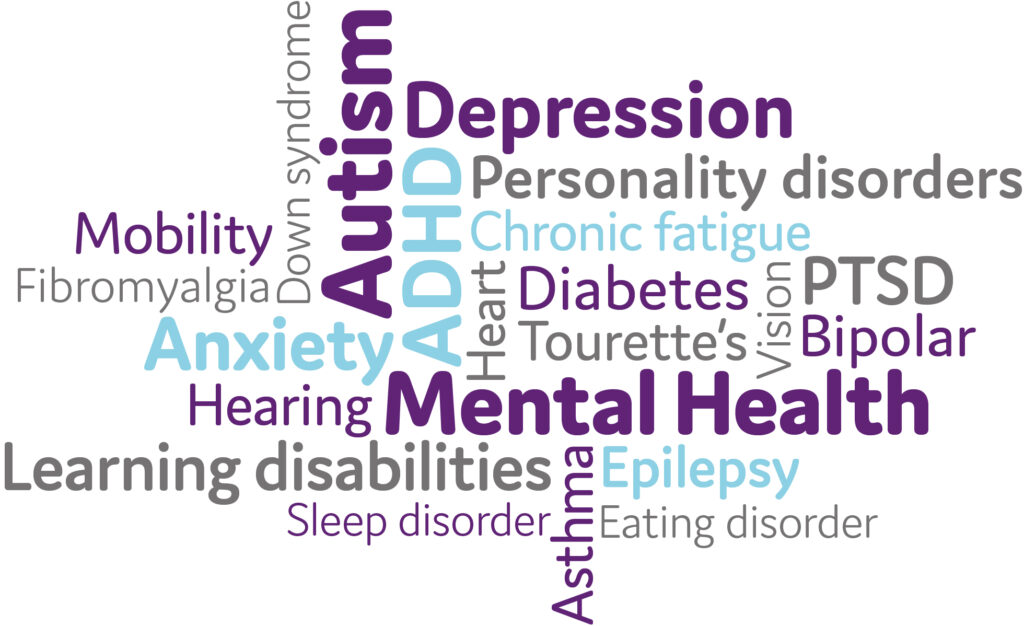01 Oct 24
Today we are publishing a new report Disability, Disparity, and Demand looking into what we do, and importantly do not know about children in and leaving care with a disability or long-term health condition in England.
It looks at the numbers and experiences of children in care and care leavers who have a disability or long-term health condition. The report find that these young people might not be getting the help they need.
Our report finds:
There’s a big difference between what local authorities (LAs) say and what care leavers report. LAs say 13% of care leavers have a disability, but 27% of care leavers say they have a disability or long-term health condition.

Local authorities don’t agree on what counts as a disability. In some areas, only 3% of children in care are recorded as having a disability, while in others, it’s 32%. The difference is even bigger for care leavers – from 1% to 36%.

More young people are saying they have a disability or long-term health condition, rising from 22% in 2017 to 32% in 2023.
There were also differences in how professionals and young people saw disability. Professionals said support is usually given for physical disabilities or learning problems, where it’s clear that help is needed. Some said they weren’t as confident about understanding conditions like neurodiversity (for example, autism). They also said that limited resources mean only the most serious cases get help, so some young people might not be seen as “disabled enough.”

However, young people shared that disability can mean different things, like neurodiversity, which can make everyday life harder. Mental health issues, like depression and anxiety, are not included in the ‘disability codes’ used by local authorities. Young people also said it’s hard to get the support they need. For some, getting a diagnosis helped them, but others worried about the stigma of having a disability.
Coram Voice is making a number of recommendations:
- Better data and understanding: Local authorities and the government should collect better information about disabilities in children in care and care leavers. This should include hearing directly from young people to improve services.
- Improved policies and services: Services should be more inclusive and ready to help disabled care-experienced young people, even those who don’t meet the criteria for special services. Staff should be trained to provide the right care and support.
Dr Claire Baker, a Senior Practice Adviser with Coram Voice, said: “To make sure disabled children in care and care leavers get their rights, we need to know who they are and how they’re doing. Without good data, we can’t create services that meet their needs.”
She added, “Our research shows a big gap in the numbers recorded by local authorities. We’re also missing young people’s voices. No matter how we measure disability, a large number of children in care and care leavers are affected, but we don’t know enough about how they’re doing. We need better data and to be more curious about disabilities when working with care-experienced young people.”
